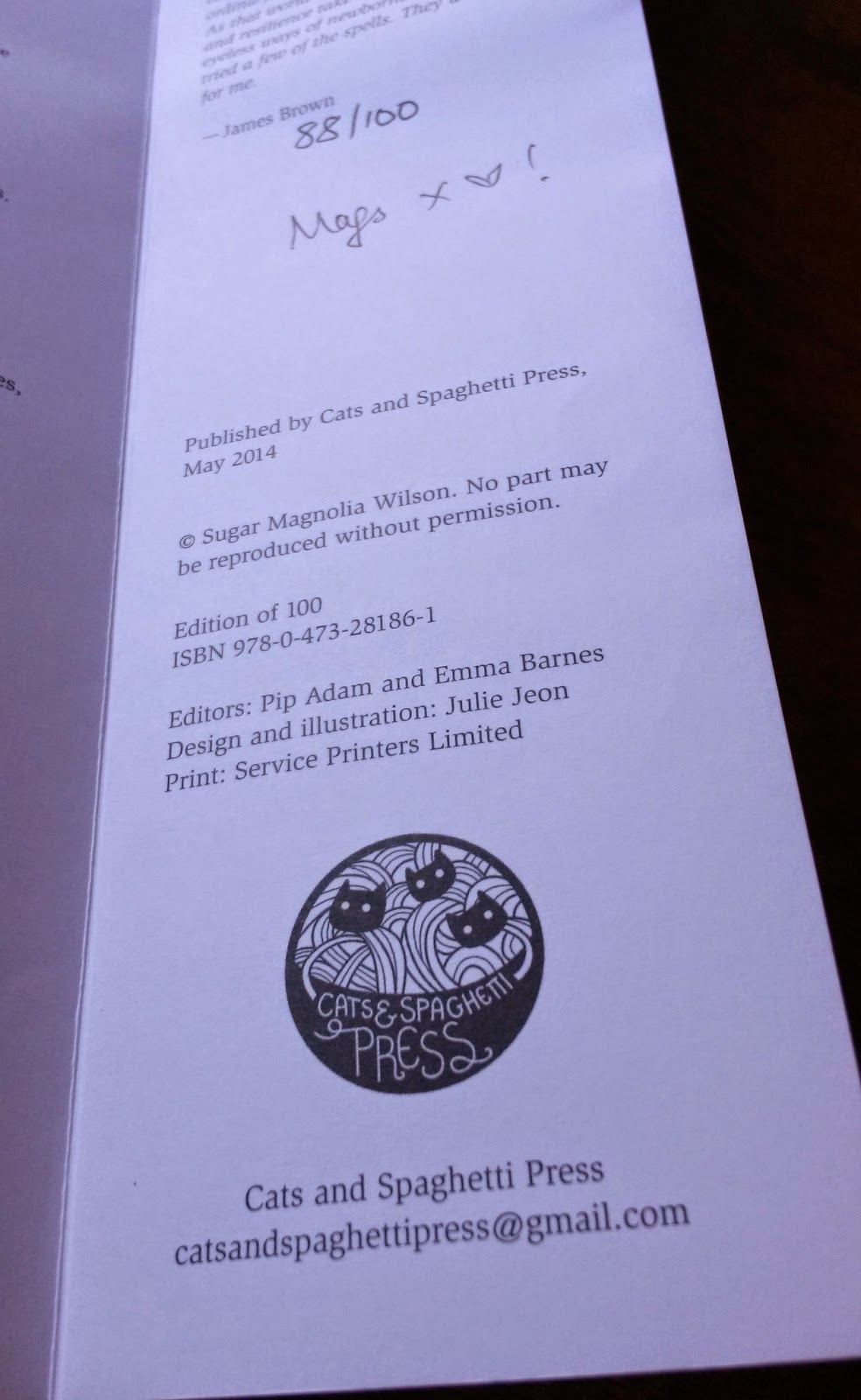At the moment of my death.
The echo I created
Outlasted my last breath.
My voice it made an avalanche
And buried a man I never knew.
And when he died his widowed bride
Met your daddy and they made you.
I have only one thing to do and that's
To be the wave that I am and then
Sink back into the ocean.
Sink back into the o-
Sink back into the ocean.
Sink back into the o-
Sink back into the ocean.
*
This week's Editor: Zireaux
“Speak, speak, I charge thee, speak" — this is Horatio, in Hamlet, imploring the ghost of Hamlet’s father not just to make some noise, to simply howl or to growl say (which would be astonishing enough), but rather to speak, to say something intelligible. More than any apparition, it's words that bring a ghost to life.
And yet, Hamlet’s father aside, they rarely make good orators, these clumsy, techno-challenged spectres and their speech impediments; rapping on tables, sending codes through flashlights and will-'o-the-wisps, playing alphabet games on ouija boards, making reverse recordings of their glossolalia on old LPs. But how else should it be? Speaking in tongues, or through mediums, offers a solution for those without tongues or bodies of their own. Divested of form, of density, what larynx can produce a voice? What brain suggests a syntax to the whims of the dead?
With her song “Container,” Fiona Apple produces the voice of a ghost — brilliantly, beautifully, but most importantly, poetically. Through lyrics, through words. It’s a wave, that voice. It rises and recedes, rages and calms. Apple starts with a tremor in her tone. Note the metrical structure here, the eerie, plaintive trimeter of the first quatrain — with its trochaic howling words, “SCREAMINGing,” “CANyon,” “MOment.” Then she belts the “echo” like no other singer, in no other song. The line becomes pure sound, pure mantra. The avalanche, meanwhile, seems completely out of place for an ocean-born ghost, but that’s the thing: This is a ghost voice. A vibration. It ripples and tsunamis through space, from sea to shining snow-top. There’s a oneness here, between language and sound, poet and phantom.
The first quatrain swells and solidifies into the event-driven physicality of the second, which is sturdy iambic tetrameter, re-enforced with the “died”/“bride” girders of internal rhyme. Note the echo-effect of line five, with its ricocheting ictus in the canyon of iambs — my VOICE, it MADE, an AVaLANCH. Apple bounces back and forth. The literary device here — “My voice, it made,” “my abc, it xyz’d” — is called dislocation,* whereby the pronoun emphasises the noun by echoing it.
And it’s the echo, the ripple, the great wave of sound that becomes physical and powerful; that causes the avalanche, that causes the death of a stranger and a child to be born. The reference to “daddy” is intimate, child-friendly.
“Containers,” I should point out, is the opening theme song of a TV series called “The Affair,” which just finished its first season on Showtime. The song lends the show a haunting artistic key with which “The Affair” never quite harmonises. Not for lack of trying. One of the show’s two main characters, Alison, insists that her dead son is still present in the world. “He’s watching us,” she says. “He’s caring for us every day.” If this is true — and at one point, yes, as Alison attempts to drown herself in the ocean, we hear the voice of a little boy shouting from the shore — if true, it’s definitely not something we want a main character to tell us.
Rather, we need to hear the ghost-voice for ourselves — which brings us back to Apple’s poem. We’re now at the third stanza, a tercet, in which the first two lines, still holding the dimensions of the previous stanza, start to tremble and collapse:
I have only one thing to do and that's
To be the wave that I am and then
This is pure abstraction, pure searching, wavy, echolocation. It’s barely English. The five-lettered “thing” is the longest of the 18 words that flail about and say nothing. Beautiful, poetic ghost-speak. There’s a very soft, ghostly, syllabic rhyme in the enjambment — “and that’s” / “and then” — which Apple deftly stresses through the rhythm and tone of her voice, before the whole thing slams into the spondee of the original trimeter: “SINK BACK into the Ocean.” From the howling trochees of “SCREAMing,” “MOment,” “CANyon” we end with another, softer, more surrendering and mournful one: “Ocean.”
One of the most beautiful themes in poetry (which circles just beyond the black hole tug of a trope) is that of the passively almighty. The powerfully weak. The noisy unnoticed. A kind of stop-motion perspective in which things that appear silent and still and locked in eternity — the ocean, the dead, the ancient rocks of Australia (see that greatest of ghost stories, Picnic at Hanging Rock) — can rise up, knock us over, overwhelm our world with their substance. Apple’s poem contains that kind of substance. It dislocates our sense of control over our lives; and makes us stop and listen in wonder.
____
This week's editor, Zireaux, lives in Canberra, Australia. His most recent novel, A Charlatan's Orbit, is available on Kindle and in paperback on Amazon. (If you can't afford the Kindle version, contact Zireaux.com, mention "Tuesday Poem," and you'll receive a free gift version). His poetry, commentary, stories, novels and other writings are available at Immortalmuse.com.
* Dupriez, B. and Halsall, A.W., A Dictionary of Literary Devices: Gradus, A-Z, University of Toronto Press, Scholarly Publishing Division, October 30, 1991; and later referenced in Huddleston, R. and Pullum G,, The Cambridge Grammar of the English Language, Cambridge University Press, April 15, 2002.









